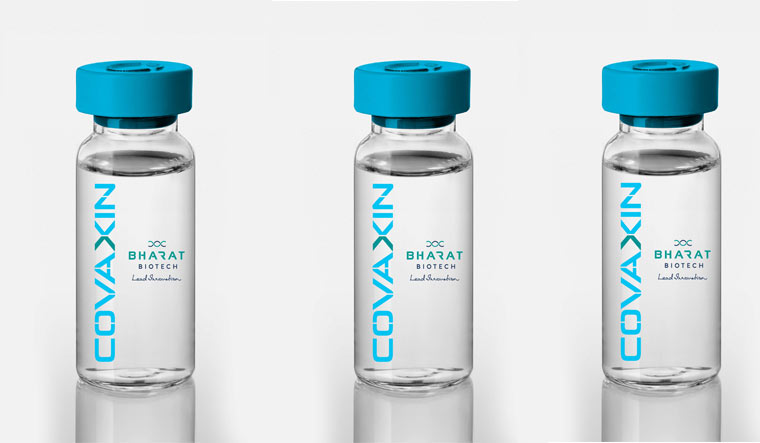Covaxin is likely to work against the UK variant of SARS-COV2, results from an ICMR-National Institute of Virology, Pune, study suggest. The study, published as a pre-print article (not peer-reviewed yet) states that it is "unlikely that the mutation 501Y would be able to dampen the potential benefits of the vaccine".
It may be recalled that the likely efficacy of Covaxin against the new variant was stated as the reason behind the much-criticised, restricted use approval of Covaxin in the absence of any data from phase 3 trials.
At NIV, scientists studied the sera from 26 recipients of BBV152/COVAXIN against hCoV-19/India/20203522 (the UK-variant) and hCoV27 19/India/2020Q111 (the heterologous strain).
“A comparable neutralisation activity of the vaccinated individuals' sera showed against UK-variant and the heterologous strain with similar efficiency, dispel the uncertainty of possible neutralisation escape,” authors of the study, including Gajanan N Sapkal, Pragya D Yadav, Rima R Sahay (NIV scientists), Raches Ella (Bharat Biotech), and Dr Balram Bhargava, director general, ICMR, state in the article.
The genome of the UK variant of SARS-COV2 has 17 mutations that are significant, eight of which were found in spike receptor-binding domain (RBD) mediating the attachment of the virus to the angiotensin converting enzyme 2 (ACE2) receptor on the surface of human cells.
The mutations have rendered the virus more transmissible, and recent reports from the UK have suggested that it may be deadlier as well. “We have now learned that, in addition to spreading more quickly, the new variant of the virus may also be associated with a higher degree of mortality. It is therefore more important than ever that we all follow the rules and stay at home, protect the NHS and save lives,” UK prime minister Boris Johnson tweeted on January 23.
Experts say that in the UK variant, three mutations are important. N501Y mutation seems to be responsible for the efficient binding of the receptor-binding domain of SARS-CoV2 spike protein with the ACE2 receptor. The ACE2 receptor is a protein on the surface of many cell types and provides the gateway for SARS-CoV2 to infect the cell. The second mutation (amino acid deletions) might be responsible for helping the virus evade the human immune system, and the third mutation, P681H, might be helpful in the cellular entry of this virus after infection.
Ever since the news of the mutations in SARS-COV2 started to trickle in, experts across the world have maintained that vaccines should work against the new variants. Aside of the UK variant (B.1.1.7), other variants such as the South African one (B.1.351) and a very similar variant (P.1) that originated in Brazil’s Amazonas state have raised concerns about durability of immunity post vaccination and previous infection.
However, evidence that vaccines work against the new strains has been awaited. Recent reports from US manufacturer Moderna have suggested that the vaccine is “expected” to be protective against the new variants.
However, with the South African strain, the company found that the antibodies required to neutralise the variant were six times higher. Moderna has said that it will start phase I trials of two booster strategies for its vaccine—a third dose of its current vaccine, or of a slightly tweaked one that incorporates the B.1.351 mutations.



